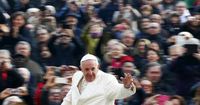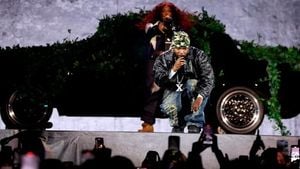Pope Francis, the beloved leader of the Roman Catholic Church, passed away at the age of 88 on Easter Monday, April 21, 2025, at dawn in Rome. The Vatican confirmed the news just a day after he made a public appearance on the balcony of St. Peter's Basilica, where he delivered a weak but heartfelt Easter blessing to the faithful.
The Pope had been in a delicate state of health for several months, having been hospitalized multiple times. His most recent hospitalization began on February 14, 2025, when he was admitted to the Gemelli hospital in Rome for what was initially diagnosed as bronchitis, which later revealed itself to be pneumonia. His condition was described as critical during this period, and he had been convalescing at the Vatican since March 23, 2025.
Born on December 17, 1936, Pope Francis was elected on March 13, 2013, following the unexpected resignation of his predecessor, Pope Benedict XVI. His papacy was marked by a commitment to social justice, interfaith dialogue, and a desire to reform the Church's internal structures to be more inclusive and less hierarchical.
Throughout his papacy, he faced a series of health challenges. In March 2023, he was hospitalized for breathing difficulties and had previously suffered from an infectious bronchitis that prevented him from attending the COP 28 conference in Dubai in November 2023. In addition to respiratory issues, he had undergone significant surgeries, including a procedure for diverticular stenosis of the colon in July 2021 and an intestinal hernia repair in June 2023.
Despite these health struggles, Pope Francis remained active in his duties, often prioritizing personal interactions over formal documentation. He was known to be a tireless worker, rising early and often working late into the night, embodying a vigorous spirit that resonated with many.
His final public appearance on Easter Sunday was a poignant moment for the Church. He appeared frail but determined, delivering his Easter message to a crowd gathered in St. Peter's Square. During this address, he called for peace in conflict zones, including a plea for a ceasefire in Gaza, denouncing the growing tide of anti-Semitism. His words reflected his deep concern for humanitarian issues around the world.
In the wake of his passing, the global Catholic community has expressed profound sorrow. Many have turned to prayer, reflecting on his contributions and the legacy he leaves behind. His approach to the papacy was characterized by a desire to engage with the world, emphasizing the Church's role in addressing societal challenges.
Pope Francis's influence extended beyond the confines of the Church. He had amassed a significant following on social media, with 44 million subscribers on the X platform (formerly Twitter). His messages often transcended religious boundaries, appealing to a diverse audience and sparking conversations about social justice, climate change, and the need for compassion in a divided world.
As the Church prepares for the transition of power following his death, the process for selecting a new pope will begin. The conclave, which will elect his successor, cannot convene until at least two weeks after his death, allowing time for mourning and reflection within the Church community.
In a departure from tradition, Pope Francis had previously expressed his wish to be buried in the Basilica of Santa Maria Maggiore rather than St. Peter's Basilica, where many of his predecessors rest. This decision reflects his desire for a more humble resting place, consistent with his emphasis on simplicity and accessibility in the Church.
The Vatican has indicated that funeral arrangements will be made public following a meeting of cardinals, and it is expected that his funeral will take place about a week after his passing, allowing the faithful to pay their respects.
Pope Francis's legacy is one of profound change and challenge within the Catholic Church. He sought to awaken the Church from its institutional inertia, advocating for a more democratic approach to governance and a greater emphasis on pastoral care. His efforts to engage with other faiths, particularly Islam, and his focus on environmental issues have left an indelible mark on the Church's mission in the modern world.
As the world mourns the loss of this influential figure, many will remember him as a pope who was not only a spiritual leader but also a voice for the marginalized and a champion for peace. His passing marks the end of an era, but his teachings and vision will continue to inspire future generations.




